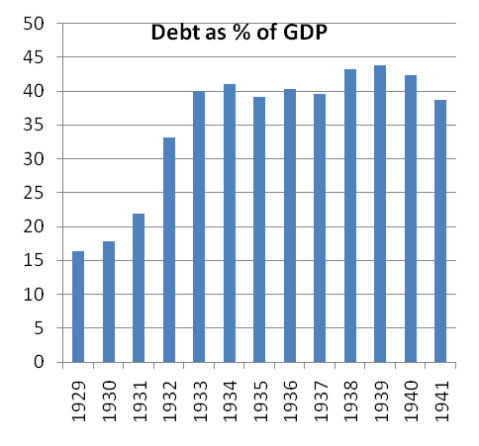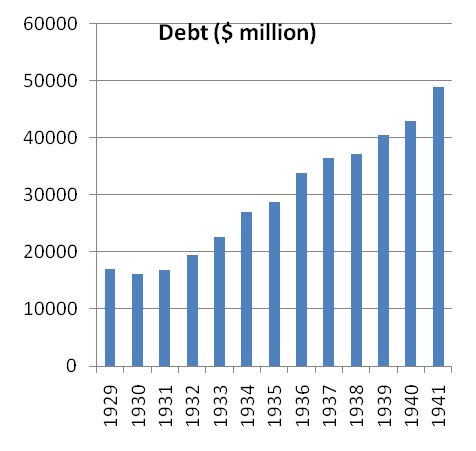| Akvod said: 1. So what did you want Krugman to do? Specify every state's unemployment benefits? Also, I'm sure Krugman wants the states that DIDN'T extend their unemployment benefits to do so, which needs to be done by the federal government. This isn't a state issue, but a national, federal one. There have been many people who've been unemployed for more than a year, and are still looking. 2. But it's such a shitty compromise that there needs to be no mention of it. Obviously we're not going to fucking eat up our stimulus money in exchange for unemployment benefits. It's not a compromise at all, it's the same as blocking it. But fine, I'll agree that it's better to always give more information, even though I think it would have made little difference in this article. 3. All I'm saying is I DON'T FUCKING CARE ABOUT THE POLITICS! I DON'T CARE IF REPUBLICANS OR DEMOCRATS ARE TO BLAME! We've been fucking playing this blame game, and this fucking word play for too long. Meanwhile we have dipshit European leaders that want to fucking shut down the world economy (plus Japan, plus fucking Canada). I like Paul Krugman, because he's fucking shouting the obvious and providing actual economic graphs and statsitcs to back it up. I understand you don't like his political talk and wordplay, and I'm telling you that I don't care about it at all. What I do care about, is the core of his article and argument. EXTEND UNEMPLOYMENT BENEFITS. 4. From what I understand, there is a filibuster in the senate, that's about to be broken with a new senator being sworn in. That's all my political knowledge. Fine, the democrats are to blame, I don't care, just fucking DO IT. 5. No comment 6. ??? Since when did we talk about raising taxes? I want to lower them, especially for the poor who will be the ones buying more stuff. In debting the US government is not depressing the economy, lowering government spending, and raising taxes are. ------------------------------------ Depression DebtBrad DeLong does the necessary on Niall Ferguson; no need for me to pile on. But I think there’s more to be said about Depression-era debt. To get the full picture, you need to go all the way back to 1929. If you were ignorant of basic facts about the Depression — or if you didn’t know that movements in a ratio can reflect changes in the denominator as well as the numerator — you might think that it’s possible to summarize fiscal policy by looking at the federal debt-GDP ratio, which looks like this from 1929-41:  Clearly, then, Herbert Hoover was a wild deficit spender, while FDR was much more cautious. Right? OK, we know that’s wrong. Here’s what nominal debt, the numerator in the debt ratio, looks like:  So Hoover ran up very little debt — only about 6 percent of 1929 GDP. FDR, on the other hand, ran up a lot of debt, about 47 percent of 1933 GDP. But Hoover presided over a shrinking, deflationary economy, while FDR presided over a rapidly growing (from a low base) economy with rising prices. I’ve been careful to use the term “presided over”: you don’t want to attribute all the differences in the two sub-eras to policy, let alone fiscal policy. Nonetheless, the fact that virtually all the deterioration in the US debt position from 1929 to 1939 took place under the tight-fisted Hoover rather than under FDR is an object lesson in the crucial importance of growth in dealing with debt. And the Hoover experience also provides a nice illustration of self-defeating austerity — not only didn’t austerity produce economic recovery, it didn’t even improve the fiscal position. It’s too bad that people who don’t understand any of that seem to have the upper hand in policy. ------------------------------------- 7. The way to support entrepeneurs are to have low interest rates and easy credit. We have that already. And I don't want to bet on entrepeneurship, when 9 out of 10 new businesses fail. And businesses invest when they expect more demand for their products, which means they need to increase their inventories. It's not fucking complicated. Seperate R&D and inovation investment from normal investment spending. 8. Yeah, but you don't give any economic reasoning. Why will fiscal responsibility help our economy? Do you agree that we will face fucking DEFLATION if we continue to let our economy fall? Do you agree that deflation is a shitty shitty ass experience vs inflation? Do you agree that it'll be harder to pay off our debt, if our GDP shrinks? Look here's my reasoning: 1) Inflation is not a risk, when we're facing a demand shock. When there's a demand shock, there's disinflation. Like I posted before, we even had a brief bout of deflation last year. As of June... I believe (?) [from the top of my head] we're at about 1% inflation levels again. 2) Eating up credit is not a risk. We've pumped as much money into the banks, and at the momment, we can't even pump any more money to lower interest rates. Interest rates are at 0% already. We're in a liquidity trap. Fuck the crowding out argument. 3) Because we're in a liquidity trap, the only option is fiscal policy. The best fiscal policy IMHO is stimulus and unemployment benefits. We help out people in most need, and we also get the bigger bang for buck. I'm unsure about infrastructure building projects as an effective stimulus. I never learned specifics. However, to me it doesn't sound that great because the money seems to go to a few people. However, building is part of business investment, which will eventually become consumer spending.
But what did you think about the content in that cartoon? Don't you think the paradox of thrift is retarded? |
Why does Akvod have such a potty mouth?
As to your argument that Hoover used austerity...He did not. Look at your own darn graphs. You argue that the first chart doesn't matter, when it clearly does. If a government is spending wildly in relation to the current economy, things should get better, by your arguments. Yet you deride Hoover for austerity.
Did you even do research on Hoover-era policies during the great depression? Or do you like spouting nonesense?
Here is a list of government projects under Hoover, as well as an essay on the growth of government under Hoover. Hint: There is a reason its called the Hoover dam and not the FDR dam. Also, federal spending jumped 88% under Hoover. You argue that he used austerity, but the fact is, he spend a lot more than you give him credit for, because you only discuss deficit spending, and not spending as a whole. Maybe its because you wanted to hide how bad Hoover was in terms of government interventionism?
http://online.wsj.com/article/SB122576077569495545.html
http://www.cato.org/pubs/journal/cj16n2-2.html
Back from the dead, I'm afraid.




















